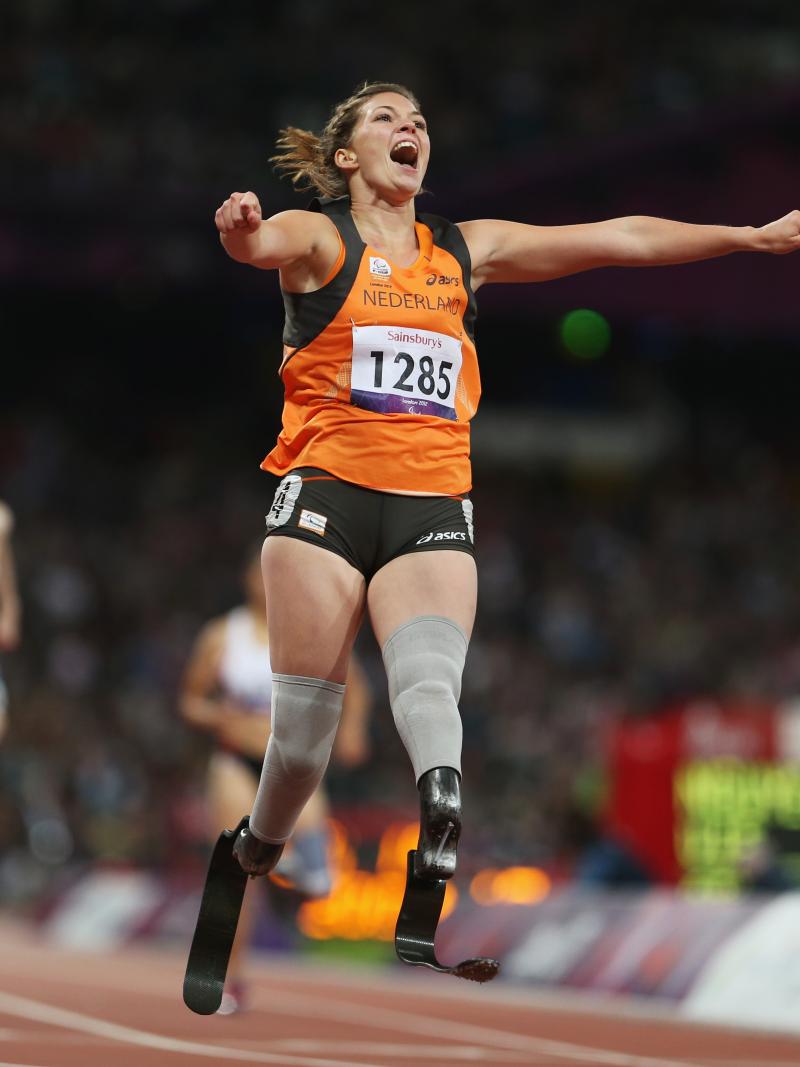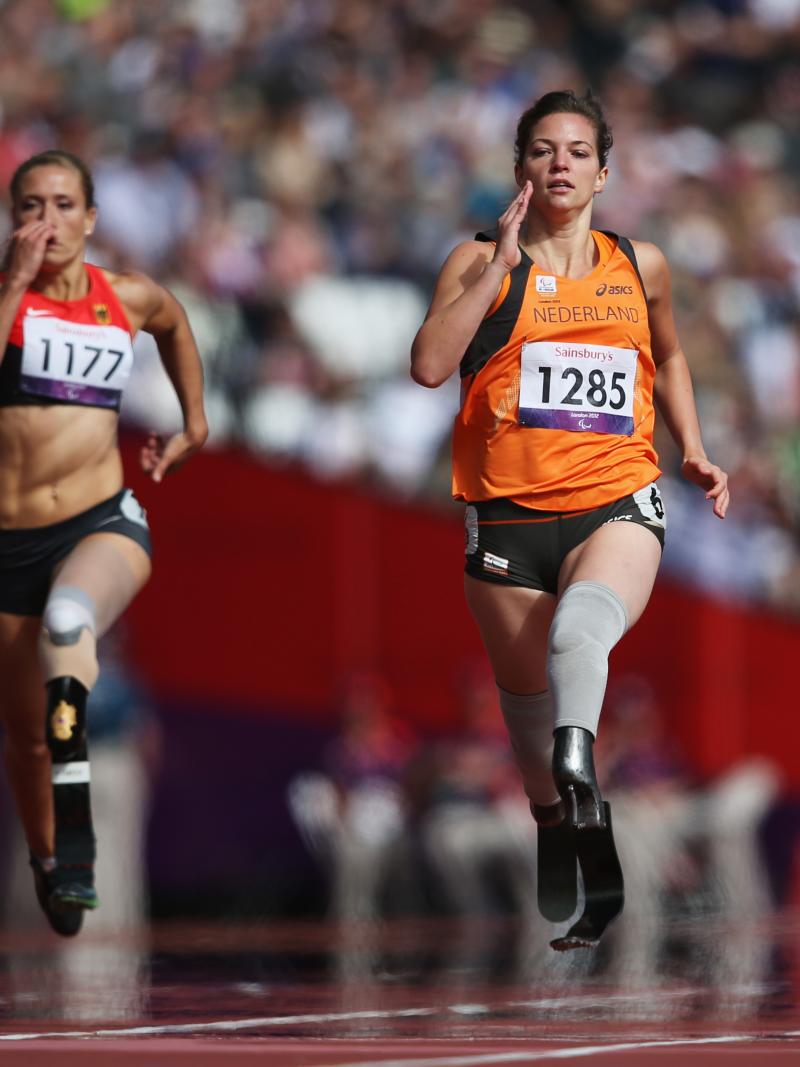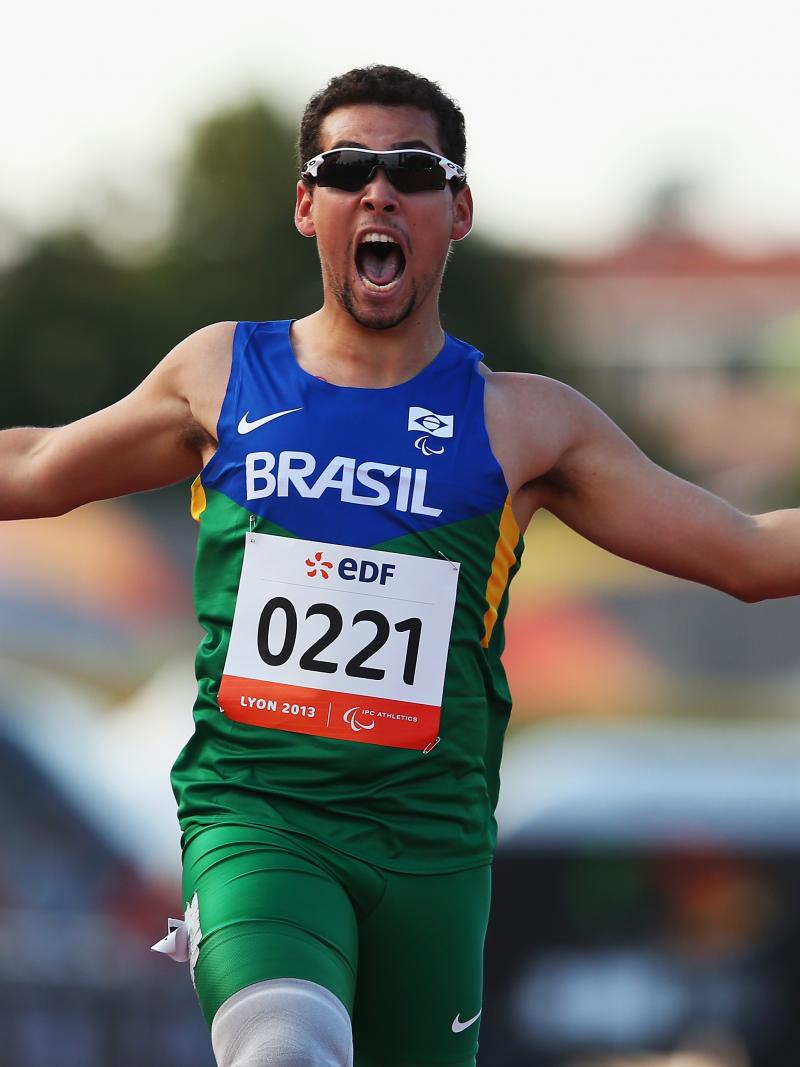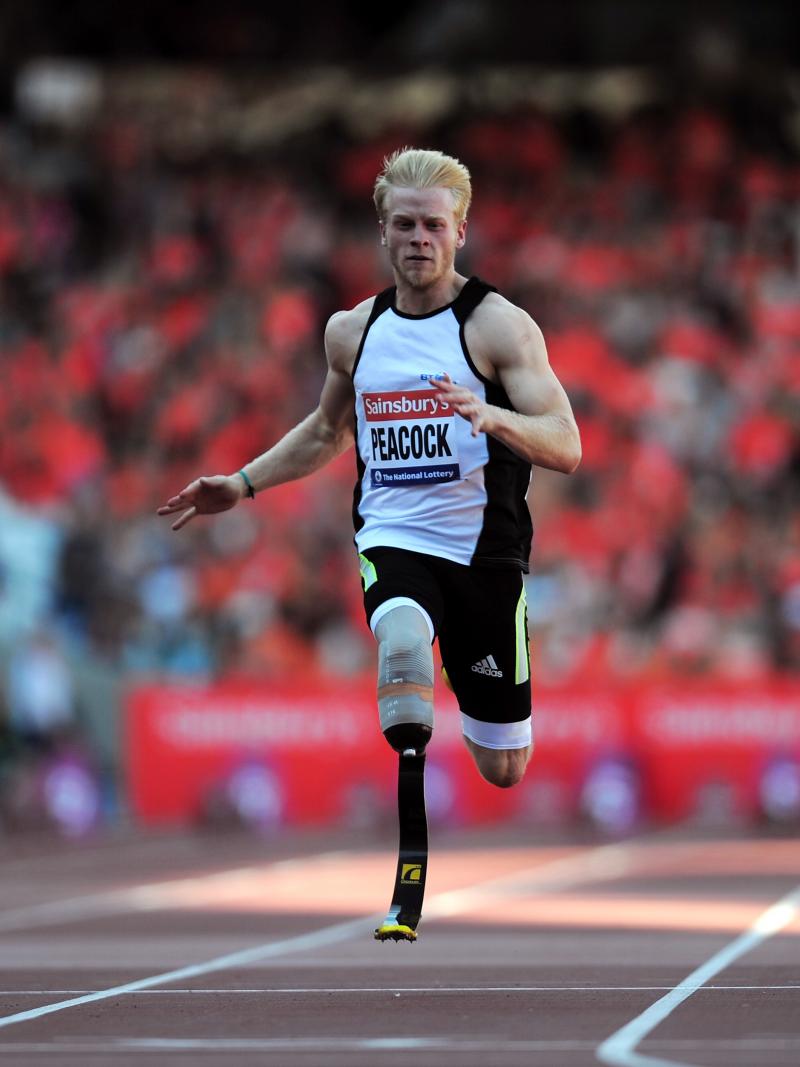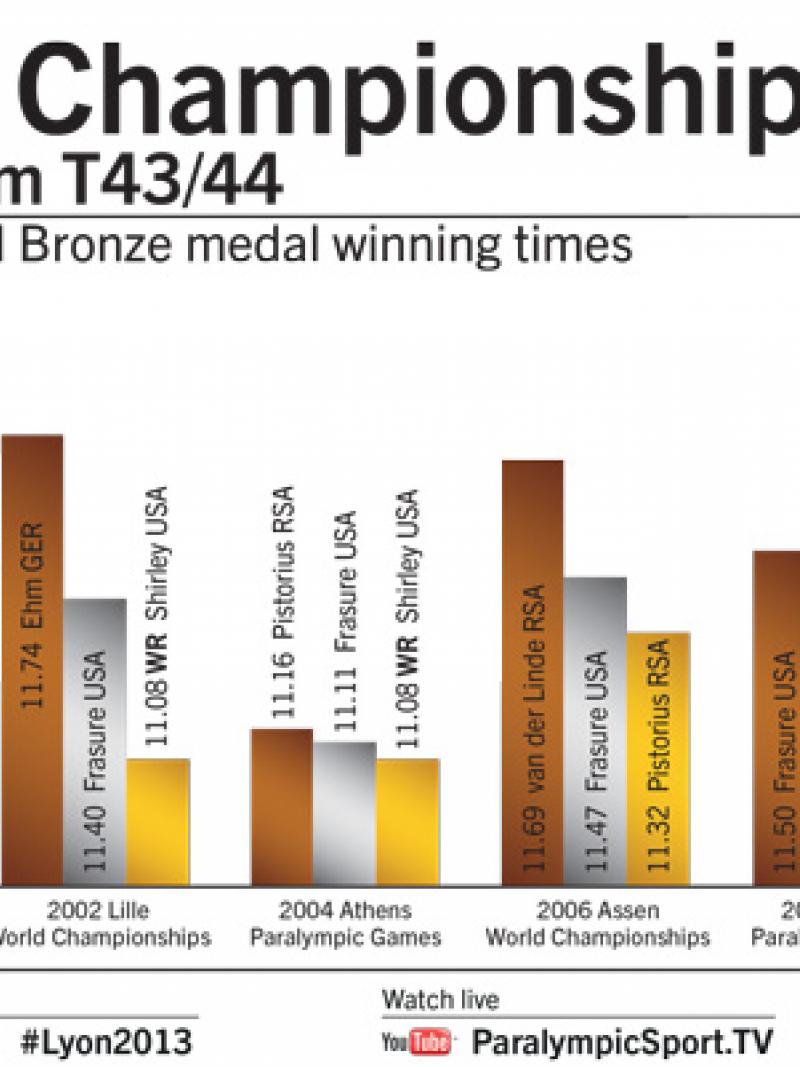No. 11: Amputee sprinters break new ground
During 47 days of sensational athletics, five athletes took leg amputee sprinting to a whole new level smashing eight world records. 21 Dec 2013
The USA's Richard Browne and Great Britain's Jonnie Peacock pose after competing in the men's 100m T43/44 race at the Sainsbury's Anniversary Games. Browne set a new world record at the event with a top time of 10.75.
Whilst Peacock and Browne postured about who was the fastest, T43 sprinters Alan Oliveira of Brazil and Marlou van Rhijn of the Netherlands stole all their headlines by becoming the fastest male and female leg amputees on the planet.
It started with an innocuous tweet. Less than 140 characters that acted as the catalyst to 47 days of sensational para-athletics that saw eight world records obliterated and leg amputee sprinting taken to a whole new level.
Few could have predicted what was in store on 10 June when British 100m T44 Paralympic champion Jonnie Peacock jokingly tweeted his American rival Richard Browne “do it when it counts and from the front then maybe I’ll take notice……. ;)”
However, what happened next will go down as the best summer of sprinting ever.
First a war of words broke out between Peacock and Browne. Whilst the two postured about who was the fastest, T43 sprinters Alan Oliveira Cardoso Oliveira of Brazil and Marlou van Rhijn of the Netherlands stole all their headlines by becoming the fastest male and female leg amputees on the planet.
At the IPC Athletics Grand Prix in Berlin, Germany, Paralympic 200m champion Oliveira showed he is just as quick over 100m running 10.77 seconds to smash the world record by 0.14 seconds.
Not to be outdone at the same meeting, Blade Babe van Rhijn then went on to smash the world records in the 100m and 400m. In running 12.96 seconds for the 100m, the Paralympic 200m champion became only the second female leg amputee ever to run under 13 seconds, whilst her 400m time of 1:01.10 underlined her stunning ability over all three sprints.
By the time the 2013 IPC Athletics World Championships opened in Lyon, France, it was time for Peacock and Browne to stop their war of words and let their performances on the track do the talking.
Before they could do battle however, both had to sit back and watch as Oliveira rewrote the history books once again, this time over 200m. Not content with winning the world title in 20.66 seconds, to knock 0.64 off the previous world record, showman Oliveira then proposed to his girlfriend back home via live Brazilian TV.
Luckily, the now Mrs Oliveira said “yes” and after Jarryd Wallace had smashed the 200m T44 world record twice in successive days on his way to a first world title, the world’s attention turned to the fierce Browne-Peacock rivalry.
Paralympic silver medallist Browne was a journalist’s dream promising to not only break Peacock’s 12 month old world record but vowing also to knock Paralympic champion Peacock ‘off his pedestal’.
By clocking 10.83 in the semi-finals, Browne succeeded in his promise, shaving 0.02 seconds off Peacock’s time. He failed however to deliver on his more sinister remark with Peacock once more keeping cool under the pressure of a final to win the world title, 0.02 seconds ahead of his rival Browne.
Barely was there enough time to draw breath before Browne, Oliveira and Peacock left Lyon and headed to the Sainsbury’s Anniversary Games in London’s Olympic Stadium to race together in a T43/44 100m showcase.
Despite having run five races in seven days in Lyon to claim three world sprint titles and a relay silver, Oliveira still had one big performance left in him, as did Browne who was spurred on by the disappointment of a second silver medal at a major Championships.
In the stadium where he first made a name for himself at London 2012, Oliveira scorched home in 10.57 seconds, taking 0.09 seconds off the time he had set 43 days earlier. Browne also lowered his own six day old world record with a time of 10.75.
Back in June, Browne predicted that by Rio 2016 an amputee sprinter would go under 10.5 seconds. After seeing what was achieved in 2013 few would bet against it happening in 2014.

 Facebook
Facebook
 Instagram
Instagram
 Twitter
Twitter
 Youtube
Youtube





